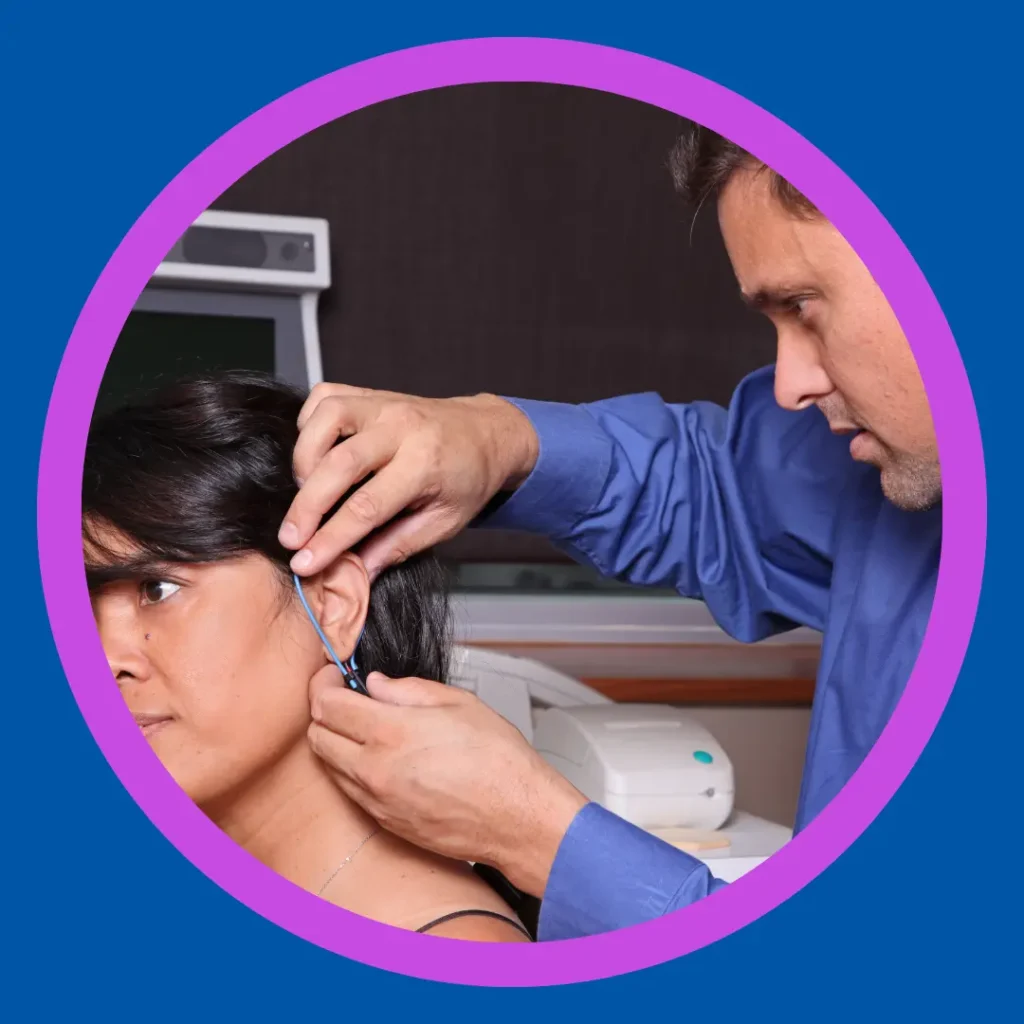Posts by Jen Zimmerman
Why Have Real Ear Measurement?
When you get hearing aids, you’re not just buying a device. You’re investing in your ability to communicate and connect. That’s why it’s critical they are fit correctly. One of the most powerful tools to ensure this is real ear measurement. Real ear measurement is the gold standard in hearing aid fittings. It helps your…
Read MoreHow Hearing Loss Affects You at Work
When it comes to your career, hearing loss affects more than just conversations. It influences communication, safety, income, and job satisfaction. Whether you’re in a bustling office, a quiet clinic, or a noisy job site, untreated hearing loss can make daily tasks frustrating and even risky. Understand how hearing loss impacts professional life and how…
Read MoreLearn About the Top Hearing Aids for Sale
Looking for the best hearing aids for sale? You’re not alone. Millions of people each year invest in better hearing—and for good reason. Modern hearing aids are packed with smart features designed to boost your hearing and your confidence. Whether you’re new to hearing aids or looking to upgrade, this guide covers what matters most.…
Read MoreFireworks May Cause Hearing Damage
Summer celebrations and fireworks go hand-in-hand. But did you know fireworks can cause hearing damage in just one blast? It’s true—even short exposures to extremely loud sounds can harm your ears permanently. At Stanford Hearing in Sioux Falls, we care deeply about your hearing health. That’s why we’re sharing the facts, risks, and protection strategies…
Read MoreCostco Hearing Aids vs Stanford Hearing Aids
Shopping for hearing aids? You’re not alone—and you have more choices than ever. Many people in Sioux Falls are curious about Costco hearing aids. The big-box store promises affordable prices, name-brand devices, and convenient bundles. Sounds great on the surface, right? But before you decide, let’s zoom out. There’s another option right here in Sioux…
Read More6 Apps for Tinnitus Relief
Tinnitus is often described as a ringing, buzzing, or hissing sound with no external source. For many, including thousands of veterans and older adults, tinnitus is more than annoying, it’s disruptive and exhausting. Hearing aid manufacturers have stepped up to meet this challenge. They’ve developed tinnitus therapy apps designed to retrain the brain, mask symptoms,…
Read MoreUnderstand CROS Hearing Aids
If you struggle with hearing in one ear or uneven hearing between ears, a CROS hearing aid may help. These devices reroute sound to your better ear and restore balance to your hearing. They help thousands of Americans every day. Let’s explore how these hearing aids work, who benefits, and how they support daily life.…
Read MoreHow Healthy Hearing Helps With Healthy Aging
Healthy aging isn’t just about eating well or exercising regularly. It’s also about protecting your senses—especially your hearing. Treating hearing loss supports mental clarity, balance, relationships, and independence. Here’s how better hearing helps you age smarter, stay safer, and live more fully. Healthy Hearing Helps Protect Brain Function Untreated hearing loss is closely linked to…
Read MoreSelecting the Best Hearing Aid Domes
Your hearing aid domes can make or break your experience with hearing aids. If you’re searching for better comfort, clearer sound, and less feedback, finding the best hearing aid domes is key. These small silicone pieces sit inside your ear canal and direct sound from the receiver into your ear. Their size, shape, and style…
Read MoreWhy Does Viagra Cause Hearing Loss?
Viagra helps millions treat erectile dysfunction, but it may come with unexpected risks. One question people ask is: does Viagra cause hearing loss? Researchers continue to explore this connection. While the risk is rare, the possible link deserves attention. Understanding this side effect helps people make informed decisions about their health. It also reminds us…
Read More









